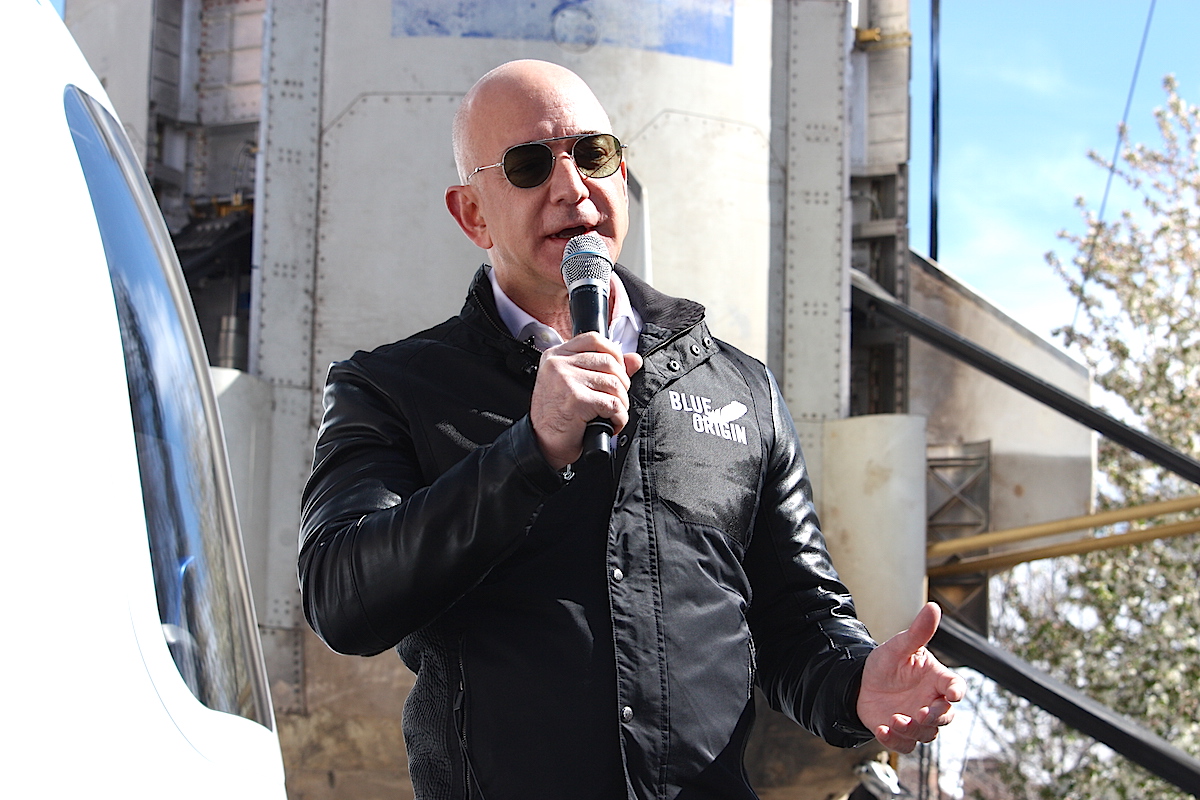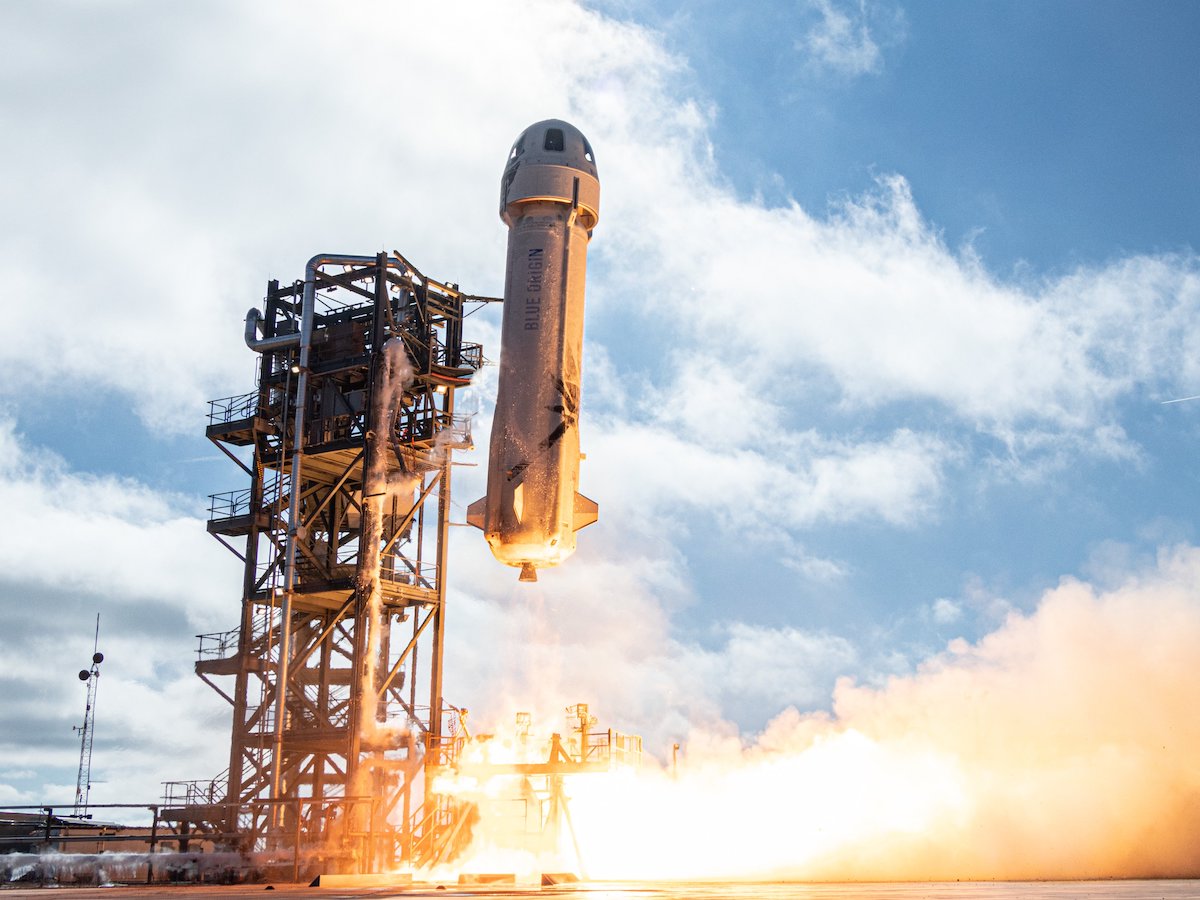
Amazon-founder Jeff Bezos and his brother, Mark, will join the winner of an on-line auction for blast off next month on an up-and-down sub-orbital flight to the edge of space aboard a New Shepard rocket and capsule built by Blue Origin, the tech billionaire’s space company.
After 16 unpiloted test flights, the upcoming July 20 launch will mark the first flight of the six-seat capsule with people on board as Blue Origin gears up to begin commercial flights later this year. Bezos made the announcement Monday on Instagram.
“You see the Earth from space that changes you, it changes your relationship with this planet with humanity. It’s one Earth,” Bezos said in a video post. “I want to go on this flight because it’s the thing I’ve wanted to do all my life. It’s an adventure. It’s a big deal for me. I invited my brother to come on this first flight because we’re closest friends.”
Brother Mark Bezos called the flight “a remarkable opportunity, not only to have this adventure, but to be able to do it with my best friend.”
Bezos’ company is competing with Richard Branson’s Virgin Galactic to carry passengers and payloads on sub-orbital flights to the lower reaches of space. Virgin’s winged rocket plane has already carried company pilots and engineers into space and the company plans to begin launching passengers in the near future.
But Blue Origin will be first off the pad with a commercially built spacecraft carrying purely civilian passengers.
Like Virgin Galactic’s spaceplane, New Shepard is a strictly sub-orbital spacecraft that is not capable of achieving the velocities required to reach orbit. While Virgin Galactic’s spaceplane will be flown by professional pilots and glide to a runway landing, the fully automated New Shepard, equipped with a flight-tested emergency abort system, descends to touchdown under large parachutes.
NASA, the Federal Aviation Administration and the U.S. Air Force consider 50 miles the lower “boundary” of space while the Fédération Aéronautique Internationale, an international governing body for aviation-related sports and records, considers 100 kilometers, or 62 miles, the effective dividing line between the discernible atmosphere and space.

Blue Origin’s New Shepard and Virgin’s spaceplane both are designed to carry passengers and payloads into the realm where wings and aerodynamics no longer have any effect, providing about five minutes of weightlessness as the spacecraft reach the top of their trajectories and begin falling back to Earth.
Blue Origin has not announced how much it will charge for a ticket to space, but rides are expected to run in the neighborhood of several hundred thousand dollars each. And space tourism is just one market. NASA is looking into taking advantage of the sub-orbital spacecraft to give astronauts spaceflight experience and is already using both companies to launch research payloads.
Blue Origin carried out its 16th unpiloted test flight of the New Shepard system on April 14 and announced last month it would launch its first piloted mission on July 20, the 52nd anniversary of the Apollo 11 moon landing, putting the first seat up for grabs in an on-line auction. As of Monday, the company said, bidding stood at $2.8 million.
When the auction was announced, the company did now reveal who might accompany the winner, but many speculated Bezos would eventually take a trip to space. No word yet on who might use the capsule’s other three seats.
Along with the sub-orbital New Shepard, Blue Origin is developing orbit-class New Glenn rockets that will use a powerful new company-designed engine, the BE-4, to help boost large satellites into orbit.
The company has built a huge rocket factory just outside the Kennedy Space Center in Florida to manufacture the rockets and is developing a launch complex at the nearby Cape Canaveral Space Force Station.
